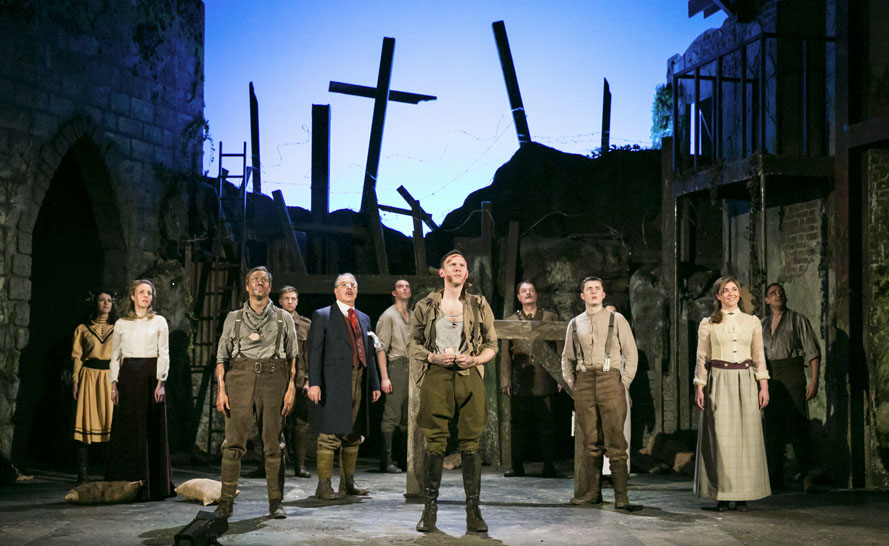 By one of those curious symmetries of history the Welsh master miners in Henry V’s campaign to Harfleur and Azincourt, were paid 12d per day, that is twice the daily rate of a longbow archer, whilst the character, Jack Firebrace, notes in Faulks’s play that infantrymen were something jealous of the sappers charged with tunnelling under enemy lines on the Somme some five hundred years later, the latter receiving higher wages on account of their greater skill required in facing their particular hardships and dangers.
By one of those curious symmetries of history the Welsh master miners in Henry V’s campaign to Harfleur and Azincourt, were paid 12d per day, that is twice the daily rate of a longbow archer, whilst the character, Jack Firebrace, notes in Faulks’s play that infantrymen were something jealous of the sappers charged with tunnelling under enemy lines on the Somme some five hundred years later, the latter receiving higher wages on account of their greater skill required in facing their particular hardships and dangers.
The play, which in Rachel Wagstaff’s adaption necessarily contracts much of Faulks’s novel, concerns in no small part the lives of the sappers and in particular one Jack Firebrace. Unable to get compassionate leave to return home on hearing of the illness of his son this devout man nevertheless buckles down without complaint to the job in hand. The character draws on a certain authority-loving aspect of the English psyche as he presents himself without complaint on a charge of sleeping whilst on watch. Only the compassionate whim of Lieutenant Stephen Wraysford, himself distracted from the enormity of events by recollections of a love affair in pre-war France, averts an otherwise certain court martial.
The brave and steadfast miner is played with sensitivity, dignity and authority by Peter Duncan who effects an unsentimental pathos in the role. At one point and without irony, he prays for his sick son lying at death’s door back in England whilst kneeling in the remains of a French church, destroyed in the senseless ‘war to end all wars’. Someone comments helpfully and again without irony that the slaughter is man’s not God’s work. Behind them throughout the play is a broken cross, formed by the timbers of a ruined building, which in Victoria Spearing’s set is variously part of the trenches, the tunnels, a chateau, a convalescent home and a brothel.
With a fine dramatic irony Firebrace later saves the life of Wraysford who had asked to be taken into one of the tunnels, thus fulfilling the prediction of his former lover’s husband that he should go to hell – which is indeed an apt description of life in the tunnels.
The episodic structure of Wagstaff’s adaption takes the action alternately back to pre-war France where Wraysford (Edmund Wiseman) falls in love with the young wife of his employer, the mill owner, René Azaire. This to-ing and fro-ing slightly weakens the emotional impact of the play as the trajectories of the two central characters are fragmented and left the Wraysford character with a bit of a sentimental burden to deal with. The relationship is played out to its unhappy and unresolved conclusion with Emily Bowker giving a fine interpretation of the emotionally and loyalty torn Isabelle.
The production remains a powerful testimony to one of the darkest periods in European history. Last night’s audience were treated to a cameo performance by the author who came on to read some battle orders. Clearly enjoying the experience he waved his cap as he left the stage after the curtain call. ★★★☆☆ Graham Wyles 28/04/15
Photo by Jack Ladenburg
Bonus track – Click here to read our exclusive interview with Peter Duncan

